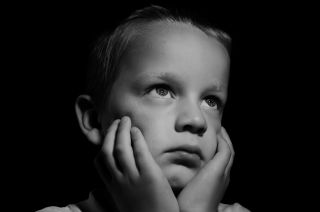Relationships
Self-Centered Parents and Their Role-Reversed Children
Discover the resulting emotional problems for children.
Posted March 17, 2023 Reviewed by Lybi Ma
Key points
- In a role-reversed relationship, a child gives emotional care to a parent.
- Self-absorbed parents have a penchant for expecting emotional care from a child.
- Role-reversed children become overwhelmed and suffer with low self-esteem, anxiety, and depression.
Role reversal takes place when the caregiving role between parent and child is reversed. The parent does not give care to the child. The child gives care to the parent. This turnaround is at the parent’s desire, not the child’s. In 1967 Salvador Minuchin created the term parentification for such role-reversed parent-child relationships.
In 2011, researcher Lisa Hooper described two forms of parentification, instrumental and emotional. Instrumental parentification occurs when a child performs physical tasks of care such as looking after younger siblings, caring for a sick parent, cooking, and other household tasks.
Emotional parentification is putting the child in a role to care for the emotional life and well-being of a parent or adult family member. The split in the description of the two types may be artificial since the two forms commonly co-occur.
Role Reversal and Self-Centered Parents
Why does role reversal take place with self-focused parents? Homer Martin, MD, and I discovered such parents have a personality component of emotional helplessness or emotional impotence in spite of outward bravado and elevated self-esteem. We learned that as children, self-absorbed people are over-indulged and catered to emotionally, with most desires being satisfied by others. They grow up to expect such emotional indulgence in adulthood, even if it comes from their child. They feel helpless inertia about rendering emotional care to themselves or to others.

Signs Role Reversal is Happening
Researcher Patricia Kerig reports children often feel overwhelmed by caring for a parent’s emotional needs. They may report symptoms of depression or anxiety without knowing why. These children see their parents as needy and believe they must step in and indulge their wish to be catered to.
Role-reversed children have difficulties maintaining interpersonal boundaries with their self-focused parent. They find they cannot say no to this parent. They fear upsetting the parent by displeasing them. They may fear abandonment or disappointment by not fulfilling their expected role. A symbiosis forms between the emotionally needy parent and indulging child. But ultimately the child loses out by subordinating his or her needs to the parent.
Effects of Parentification on a Child
Gregory Jurkovic, the author of Lost Childhoods, reports on the loss of childhood of the parentified child. This may include a loss of educational attainment by dropping out of school prematurely. Such children may have little time for peer relationships.
Role-reversed children also suffer from lower self-esteem, depression, anxiety, and risk of suicide, say researchers Katz and Rabinowitz. They may form symbiotic role-reversed relationships with other family members and friends as if carrying the template with them in their minds.
As adults, they may form symbiotic role-reversal relationships in romantic encounters. This means they will gravitate toward a self-centered partner who requires inordinate emotional care from them. They carry forward from childhood the same difficulty with setting emotional boundaries on people who usurp their time and emotional energy.
Implications
Several scenarios are important for evaluating if a parentified child is being put in a position of emotionally caring for a parent. One is divorce with joint custody and split residential living. Court decision-makers should ensure a child is not spending much time with a self-absorbed parent who parentifies a child.
A second circumstance involves adoption. A third involves foster care placement. Potential parents should be scrutinized for their self-centered personality traits and penchant to form role-reversed relationships with a child.
References
Hooper, L.M. (2011). “Parentification,” Encyclopedia of Adolescence, Springer Science & Business Media, pp. 2023-2025.
Jurkovic, G.J. (2014). Lost Childhoods: The Plight of the Parentified Child. Routledge.
Katz, P.J. & Rabinowitz, J. (2009). A retrospective study of daughters’ emotional role reversal with parents, attachment anxiety, excessive reassurance-seeking, and depressive symptoms.” The American Journal of Family Therapy. 37(3): 185-195.
Kerig, P.K. (2014). Implications of Parent-Child Boundary Dissolution for Developmental Psychopathology:”Who Is the Parent and Who Is the Child?” Routledge.
Martin, H.B. & Adams, C.B.L. (2018). Living on Automatic: How Emotional Conditioning Shapes Our Lives and Relationships. Praeger.
Minuchin, S. (1974). Families and Family Therapy, Harvard Press/London: Tavistock.


